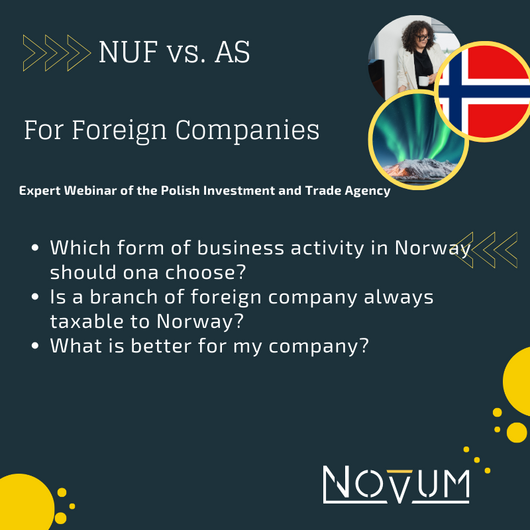July 07, 2025
Wage levels depend on the worker’s qualifications. For foreign workers, this also depends on whether their education is recognized in Norway. The distinction between skilled and unskilled workers is based on the regulations on the partial general application of collective agreements in Norwegian construction.
A person with formal vocational training—holding a “fagbrev” (Norwegian trade certificate) or an equivalent recognized by NOKUT (Norwegian Agency for Quality Assurance in Education).
A person without a trade certificate, regardless of experience.
The general application of collective agreements imposes obligations beyond those in the Norwegian Working Environment Act (Arbeidsmiljøloven).
Must be paid at a minimum of 40% extra on top of the base rate.
Even if the worker "recovers" overtime hours (flex-time), the overtime premium must still be paid.
Note:In Norway, working hours can be averaged . Check the local work schedule and ensure it's formally approved.
Under the generally applicable collective agreement for construction and Labour Inspection Authority (Arbeidstilsynet) guidelines, the employer must cover specific expenses for posted workers:
Before a worker leaves their permanent residence, the employer must have a written agreement covering:
The employer (or branch office) must provide safe, hygienic, and properly equipped lodging—meeting current standards (e.g., separate beds, access to bathroom and kitchen).
The Labour Inspection Authority can inspect such accommodations and may order changes, closures, or impose sanctions in case of non-compliance.
Workers must have their travel to and from the workplace covered, including a defined number of return trips to their home country.
Typically provided through a fixed daily per diem or reimbursement of actual expenses with receipts.
Workers must receive appropriate protective clothing and footwear—new at the start of employment and replaced when worn out.
Author:Anna Korpalska
Sources:Norwegian Labour Inspection Authority (Arbeidstilsynet)
Graphics: Canva
In our previous article, we focused on general regulations and collective agreements. Today, we present the updated minimum wage rates and additional requirements employers in the construction industry must meet in Norway.
👷♂️ Who Is Considered a Skilled Worker by the Norwegian Labour Inspection Authority?
Wage levels depend on the worker’s qualifications. For foreign workers, this also depends on whether their education is recognized in Norway. The distinction between skilled and unskilled workers is based on the regulations on the partial general application of collective agreements in Norwegian construction.
🔧 Faglært (Skilled Worker)
A person with formal vocational training—holding a “fagbrev” (Norwegian trade certificate) or an equivalent recognized by NOKUT (Norwegian Agency for Quality Assurance in Education).
🛠️ Ufaglært (Unskilled Worker)
A person without a trade certificate, regardless of experience.
💰 Minimum Wage Rates on Norwegian Construction Sites from 15.06.2025
Skilled worker (Faglært) | NOK 264.32
Unskilled worker (Ufaglært) without experience | NOK 239.61
Unskilled worker (Ufaglært) with ≥1 year experience | NOK 249.00
Worker under 18 years of age | NOK 162.44
Unskilled worker (Ufaglært) without experience | NOK 239.61
Unskilled worker (Ufaglært) with ≥1 year experience | NOK 249.00
Worker under 18 years of age | NOK 162.44
📈 Overtime, Expenses, Workwear – Additional Employer Obligations
The general application of collective agreements imposes obligations beyond those in the Norwegian Working Environment Act (Arbeidsmiljøloven).
⏱ Overtime
Must be paid at a minimum of 40% extra on top of the base rate.
Even if the worker "recovers" overtime hours (flex-time), the overtime premium must still be paid.
Note:
🏕 Accommodation, Meals, and Travel – Mandatory Requirements ⚖️
Under the generally applicable collective agreement for construction and Labour Inspection Authority (Arbeidstilsynet) guidelines, the employer must cover specific expenses for posted workers:
1. 🎒 Agreement Before Posting
Before a worker leaves their permanent residence, the employer must have a written agreement covering:
- Who provides the accommodation
- Meal arrangements (fixed allowance or reimbursement of actual costs)
- Reimbursement rules for travel to/from the worksite at the start and end of the assignment and possible regular trips home
2. 🏠 Accommodation for Posted Workers
The employer (or branch office) must provide safe, hygienic, and properly equipped lodging—meeting current standards (e.g., separate beds, access to bathroom and kitchen).
The Labour Inspection Authority can inspect such accommodations and may order changes, closures, or impose sanctions in case of non-compliance.
3. 🚆 Travel Expenses
Workers must have their travel to and from the workplace covered, including a defined number of return trips to their home country.
4. 🍽️ Meals / Daily Allowance
Typically provided through a fixed daily per diem or reimbursement of actual expenses with receipts.
👕 Workwear
Workers must receive appropriate protective clothing and footwear—new at the start of employment and replaced when worn out.
✅ Summary of Obligations for Foreign Employers in Norway
- Ensure the correct minimum wage according to qualifications
- Cover all supplements: overtime, meals, accommodation, and workwear
- Inform contractors about the applicable wage rates
- Monitor compliance with regulations by any subcontractors
Thinking of starting work in Norway?
We offer a non-binding consultation for companies planning to operate in the Norwegian construction sector.
office@novum.no
anna.korpalska@novum.no
We offer a non-binding consultation for companies planning to operate in the Norwegian construction sector.
office@novum.no
anna.korpalska@novum.no
Author:
Sources:
Graphics: Canva
Questions about doing business & accounting services in Norway?
Send question now!We are here to help you.



